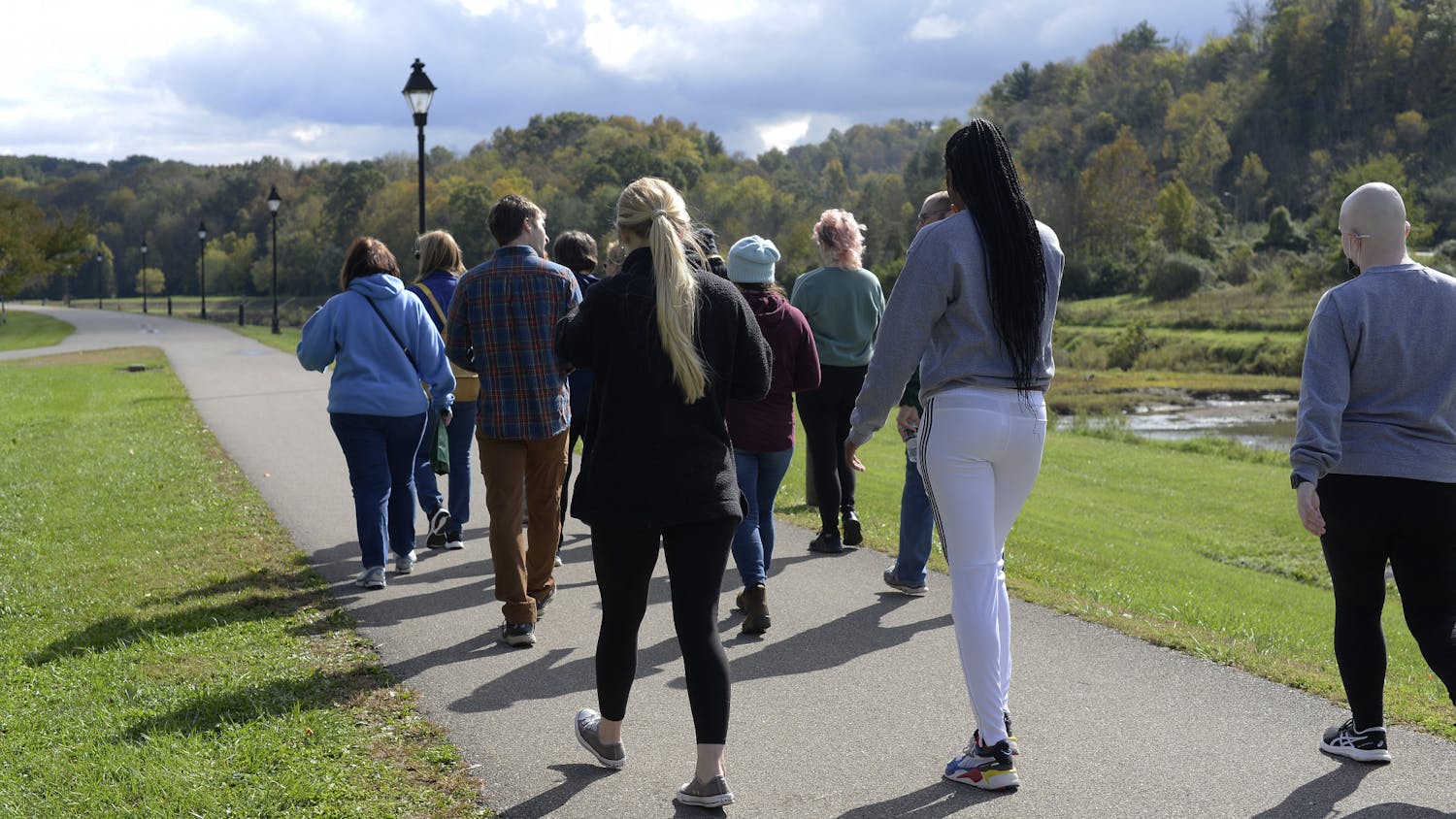Correction appended.
Ohio University researchers recently published a study demonstrating the comparisons between racial and ethnic disparities and COVID-19 deaths.
In her study, Berkeley Franz, an associate professor of community-based health in the Heritage College of Osteopathic Medicine, or HCOM, wanted to evaluate which social factors underlie health disparities concerning COVID-19. Franz focused on the effects of systemic racism and how residential segregation contributed to an increase in COVID-19 deaths.
Ohio leads “the country in terms of the worst health disparities and infant mortality,” said Franz. She also mentioned Ohio ranks roughly in the bottom two of all states in the nation.
The study found a considerable difference in death rates among Black and white residents. For every 100,000 Black individuals with COVID-19, 102.1 died. In comparison, for every 100,000 white individuals with COVID-19, only 73.1 died.
Franz said social factors need to change, but explained how difficult that is due to the long-term and persisting effects of inequality in the United States.
Even more, Franz stressed this issue is not something that can be fixed just within the health care system because it “only benefits people who are already privileged … in our society, and it doesn’t benefit people who are experiencing economic distress.”
Several OU students are now taking measures to bring awareness to this health care problem experienced by racial and ethnic minorities.
The Racial Equity Coalition's Health and Wellness Committee has created a panel to recognize minority international students' experiences with health care in hopes of making Athens a more inclusive and understanding space, according to a previous Post report.
Another support group at OU, Change Our Outcomes, coordinated an event to walk for change and bring awareness to the disparities Black women and women of color face in health care. The group also hosted Black and women of color health care providers to facilitate candid conversations about the impending issues of health care, according to a previous Post report.
However, Franz said more can still be done to alleviate this issue. She stresses local and national government institutions should look for ways to create social mobility, the ability to move up the socioeconomic ladder, for Black residents.
Adrienne Milner, a senior lecturer in the Division of Global Public Health at Brunel University London and a colleague of Franz’s study, also provided a proposal to change the country’s issue with health disparities.
“One step is dismantling colorblind racist ideology that is currently viewed by white Americans as ideal,” Milner said in an email. “This means fighting against current bans to teach critical race theory and instead, focus on promoting knowledge of the reality of past and continued systemic racism in the U.S.”
Zelalem Haile, an associate professor of epidemiology at OU Dublin’s HCOM campus, recently conducted a study about vaccine hesitancy among Ohioans. Haile’s study shows overlapping similarities with Franz’s research. It explains why a majority of Black residents are skeptical of the vaccine because of the long history of embedded systemic and medical racism.
Some societal groups have higher doubts about the COVID-19 vaccine because of “the lack of trust of the medical community due to historical mistreatment of African Americans. For individuals with lower education, hesitancy could simply be a manifestation of lower health literacy and reduced levels of trust in medical information,” Haile said in an email.
To combat hesitancy among African American communities, Haile suggests government officials don’t simply say ‘We now have guidelines to protect you,’ and expect Black residents to be fully trusting of their word.
“First, there should be a sufficient level of acknowledgment that there is a history behind why there is mistrust in these communities,” he said in an email. “In addition to having a discussion on historical events that led to mistrust of government institutions, efforts should also be placed to have an honest conversation related to the effects of everyday racism and other social determinants of health that these communities face.”
Both Haile and Franz’s studies demonstrate potential solutions to try to diminish the wide gap of health disparities in the U.S. They are both confident that change is probable among society, citizens just need to act on it.
“When people talk about [implicit bias], their implicit bias lowers their potential to act on implicit bias to discriminate against people also is lowered,” Franz said. “So I think that's also something to reinforce with people, is that these things are actionable … Even though it's a big, societal problem, doesn't mean that it's hopeless or that we can’t do anything about it.”
Correction: A previous version of this article stated that Haile is an assistant professor, when he is an associate professor. This article has been updated to reflect the most accurate information.






